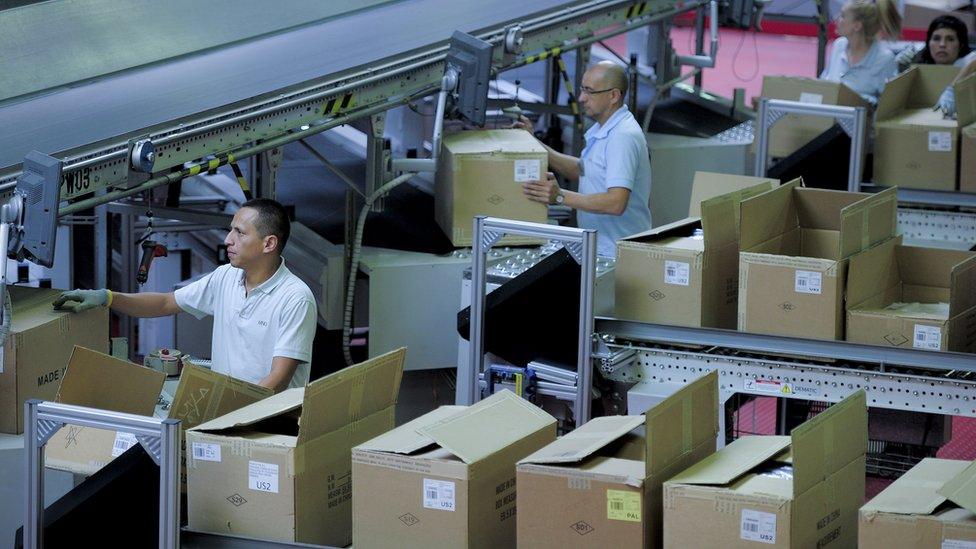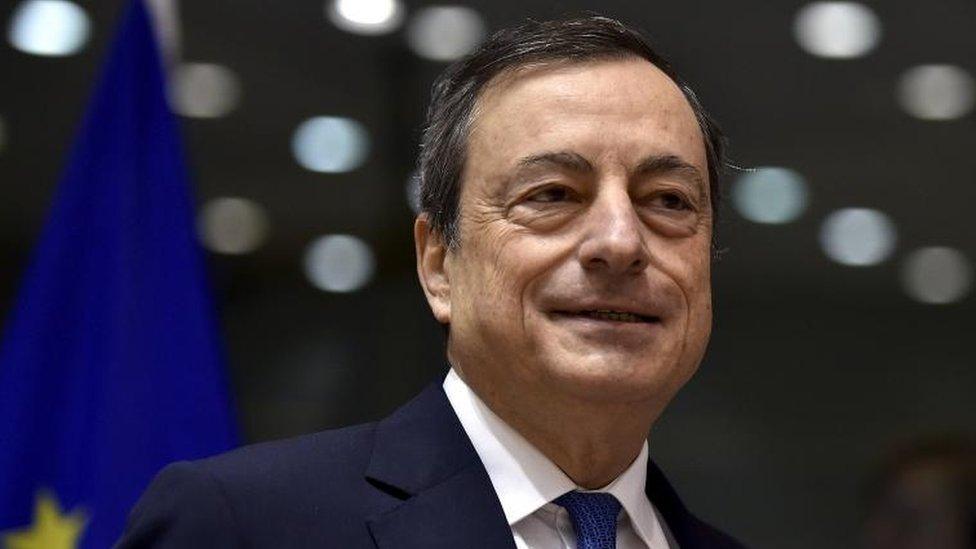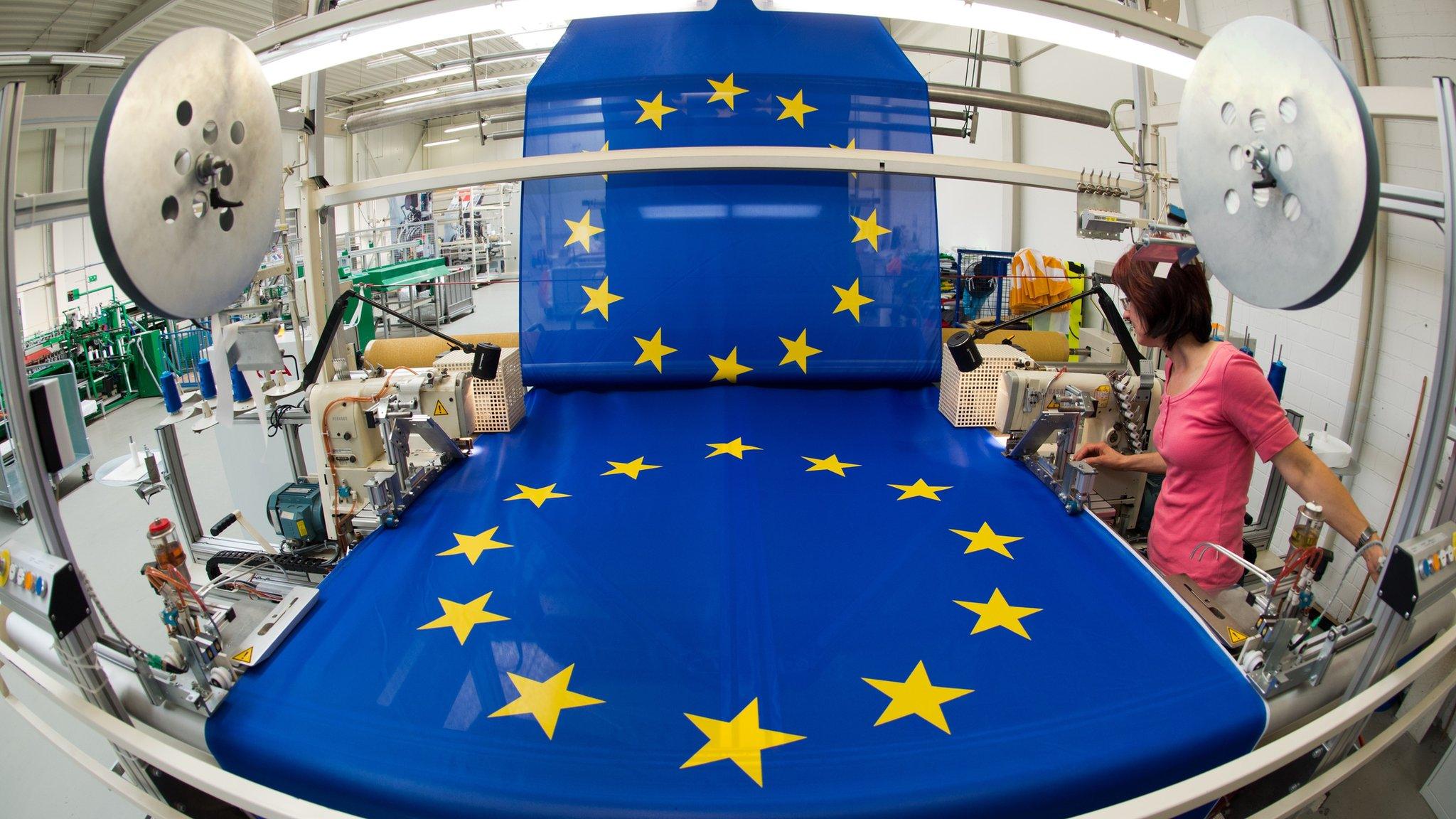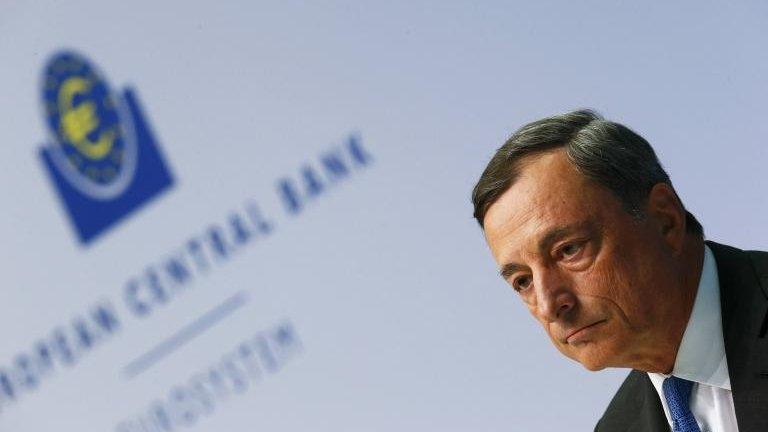Eurozone economy slows in third quarter
- Published

Economic growth in the eurozone slowed to 0.3% in the third quarter of the year, latest figures have shown.
The rate, external was lower than expected, and compared with a pace of 0.4% recorded in the previous quarter.
The pace of expansion in Germany, the eurozone's largest economy, slowed, but France returned to growth.
The European Central Bank (ECB) is widely expected in December to expand its stimulus programme, which aims to lift inflation and support growth.
Higher imports
Germany's economy grew by 0.3% in the July-to-September period, down from 0.4% in the previous quarter.
The country's Federal Statistics Office said, external the economy had shown "continued moderate growth", helped by increased domestic consumption.
But it added foreign trade "had a downward effect on growth, because the increase in imports was markedly larger than that of exports".
The French economy also grew by 0.3% in the same period, but this marked a pick-up from zero growth previously.

Will Mario Draghi announce more stimulus measures after the ECB's December meeting?
The French statistics agency INSEE, external said a rise in imports had also weighed on the country's growth rate.
But it added that the economy saw an increase in household spending, and that production of goods and services picked up.
"The [GDP] figure... confirms that we have left in 2015 the period of very weak growth that France had experienced since 2011," said French Finance Minister Michel Sapin.
Among the other major eurozone economies, the growth rate in Italy slowed to 0.2%, which was worse than expected, while the Spanish economy grew by 0.8%.

Analysis: Andrew Walker, BBC economics correspondent
The recovery continues, but it doesn't get any more convincing. And there are signs of the emerging economies leaving an unwanted imprint on the eurozone. The statistical agencies in both France and Germany said international trade developments held back growth, without pinning it on any specific group of countries.
So can we expect the European Central Bank to come to the rescue? There have certainly been signs that suggest a good chance of further action at the next policy meeting, in early December.
It's true that the ECB's decision-makers will probably be more directly influenced by inflation developments. Nonetheless, this latest sign of slippage in a recovery that was never robust does strengthen the hand of those arguing for a more aggressive ECB stance.

Portugal's economy recorded zero growth despite having expanded by 0.5% in the second quarter. Greece's economy contracted by 0.5%, while Finland's shrank by 0.6%.
The Eurostat figures showed the eurozone's economy grew by 1.6% in the third quarter compared with a year earlier.
"The third-quarter slowdown in eurozone GDP growth appears to have been largely the consequence of negative net trade," said Howard Archer, economist at IHS Global Insight.
"This suggests that the benefit to eurozone exporters coming from the weak euro was offset by muted global growth."
More QE?
Expectations are growing that the European Central Bank (ECB) will expand its monetary stimulus programme at its meeting next month.
In October, the bank said it would "re-examine" the policy, and on Thursday, ECB president Mario Draghi said the bank was ready to extend its policy if needed.
In January this year, the ECB started a quantitative easing (QE) stimulus programme worth at least €1.1 trillion in an attempt to avoid deflation and boost growth in the eurozone.
The bank has committed to buy €60bn of bonds a month until September 2016.
The most recent figures showed inflation in the eurozone returned to zero in October from September's -0.1%.
Speaking to the European Parliament on Thursday, Mr Draghi said: "Signs of a sustained turnaround in core inflation have somewhat weakened.
"We have always said that our purchases would run beyond end-September 2016 in case we do not see a sustained adjustment in the path of inflation."
- Published30 October 2015

- Published22 October 2015
